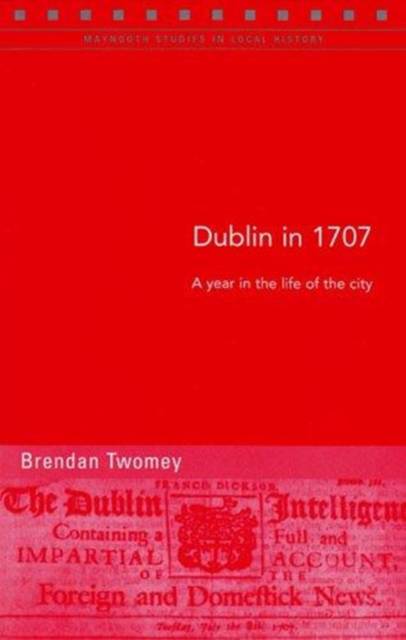
Bedankt voor het vertrouwen het afgelopen jaar! Om jou te bedanken bieden we GRATIS verzending (in België) aan op alles gedurende de hele maand januari.
- Afhalen na 1 uur in een winkel met voorraad
- In januari gratis thuislevering in België
- Ruim aanbod met 7 miljoen producten
Bedankt voor het vertrouwen het afgelopen jaar! Om jou te bedanken bieden we GRATIS verzending (in België) aan op alles gedurende de hele maand januari.
- Afhalen na 1 uur in een winkel met voorraad
- In januari gratis thuislevering in België
- Ruim aanbod met 7 miljoen producten
Zoeken
Omschrijving
What happened in Dublin in 1707? At first glance - not much. But initial impressions can be misleading - the legacy of the decisions reached in 1707 persist to this day.The Ballast Office (Dublin Port), the Registry of Deeds and Marsh's Library were all founded in that year. This study describes, primarily from a contemporary perspective and using contemporary sources, the events of 1707 - these include the laws enacted and the issues debated by the Irish Parliament and the decisions of Dublin Corporation and the parish vestries of the Church of Ireland - these later two bodies had the most immediate impact on the daily lives of Dubliners. The study also analyses a number of other cultrual, social and economic events that would have constituted the topics of everyday conversation in 1707.
Specificaties
Betrokkenen
- Auteur(s):
- Uitgeverij:
Inhoud
- Aantal bladzijden:
- 78
- Taal:
- Engels
- Reeks:
- Reeksnummer:
- nr. 87
Eigenschappen
- Productcode (EAN):
- 9781846821943
- Verschijningsdatum:
- 15/10/2009
- Uitvoering:
- Paperback
- Formaat:
- Trade paperback (VS)
- Afmetingen:
- 140 mm x 210 mm
- Gewicht:
- 108 g

Alleen bij Standaard Boekhandel
+ 27 punten op je klantenkaart van Standaard Boekhandel
Beoordelingen
We publiceren alleen reviews die voldoen aan de voorwaarden voor reviews. Bekijk onze voorwaarden voor reviews.









